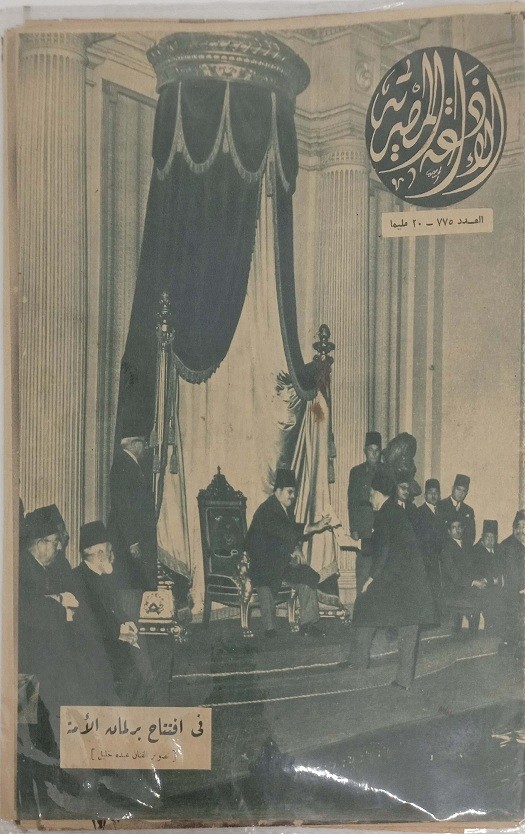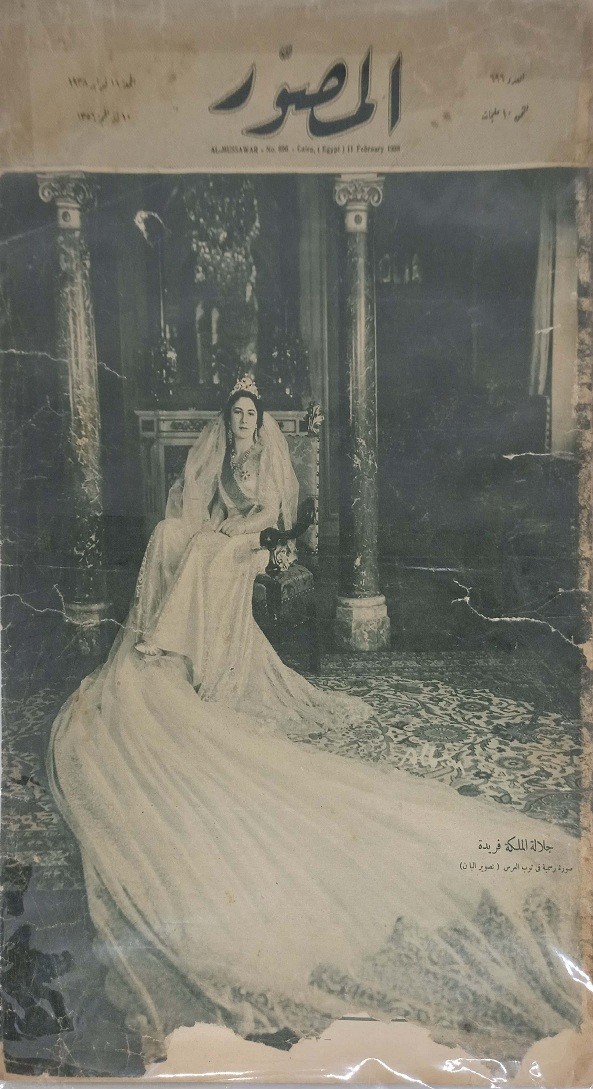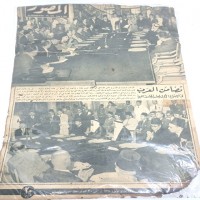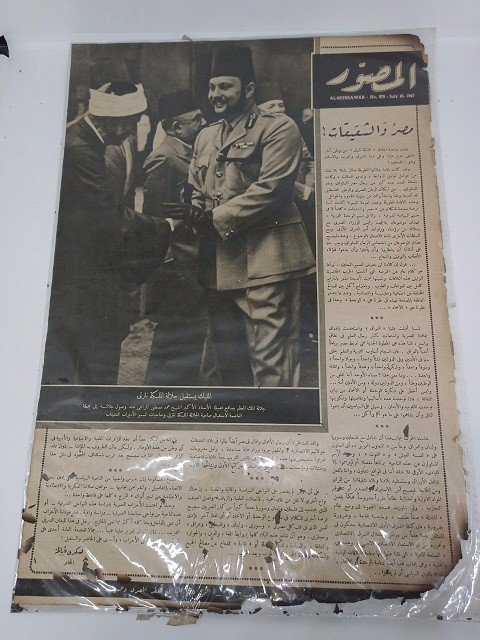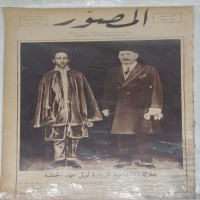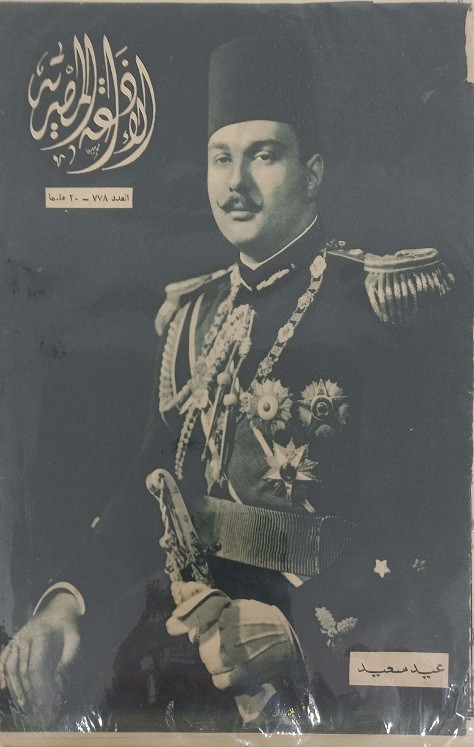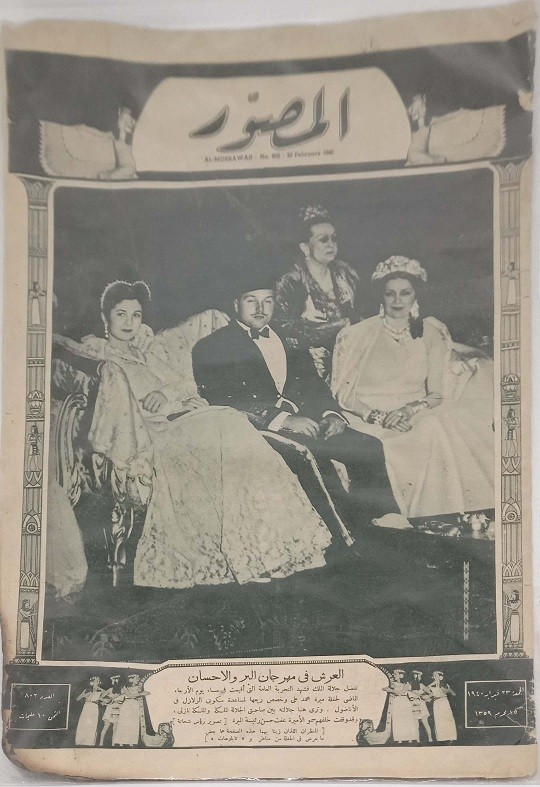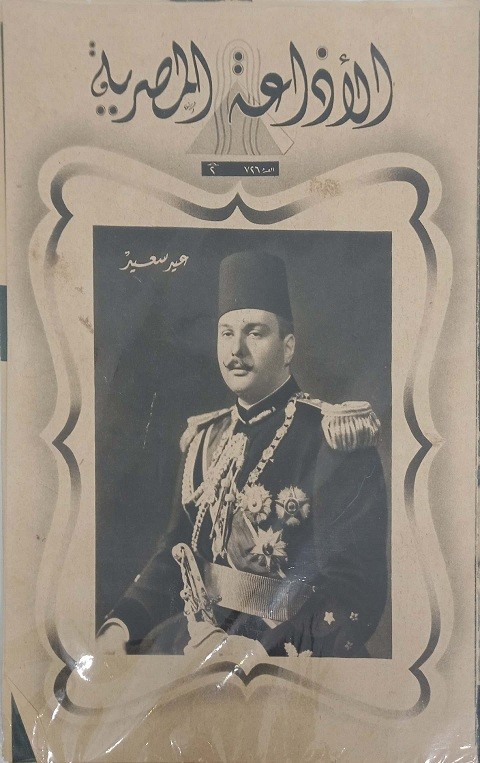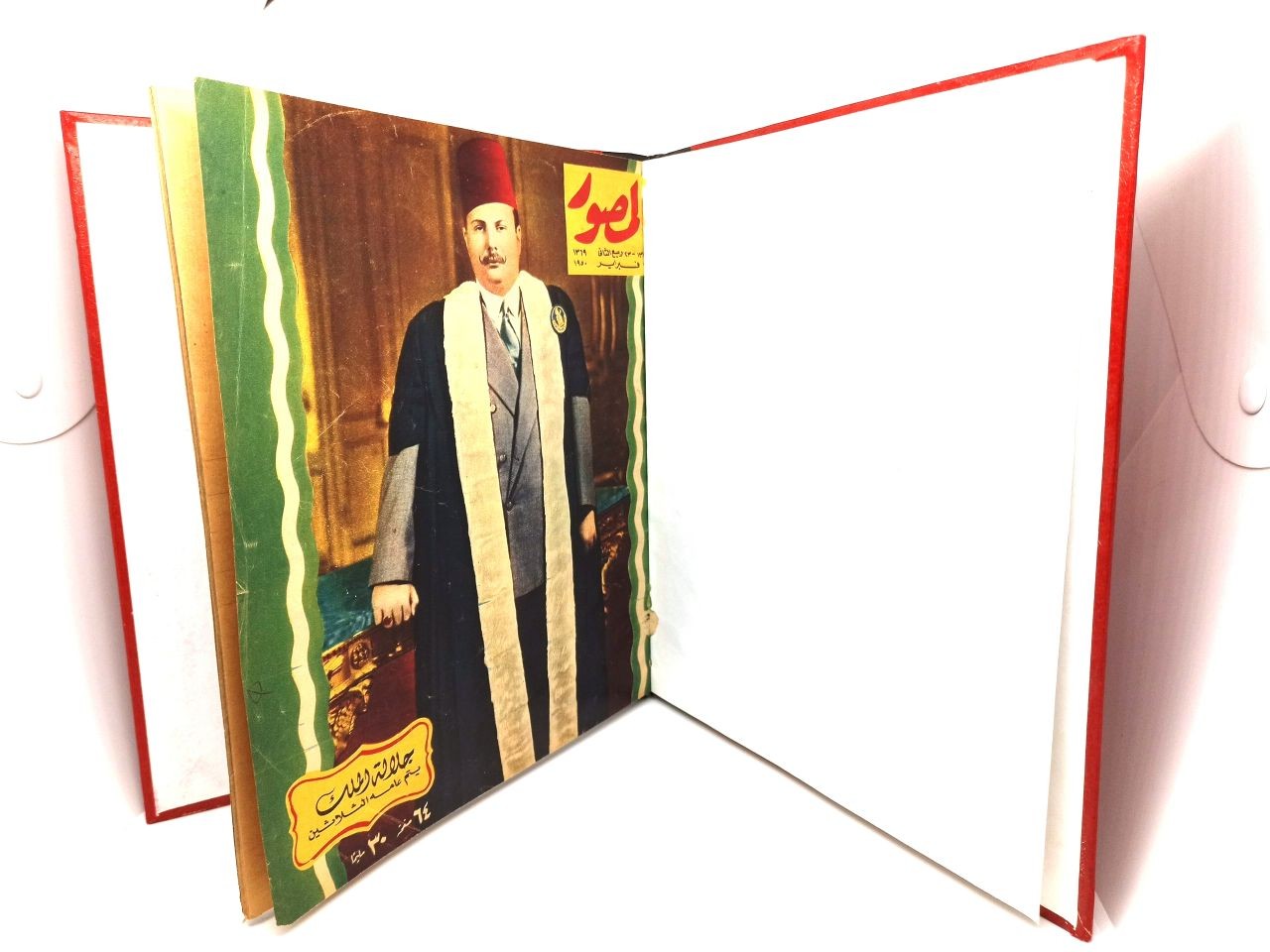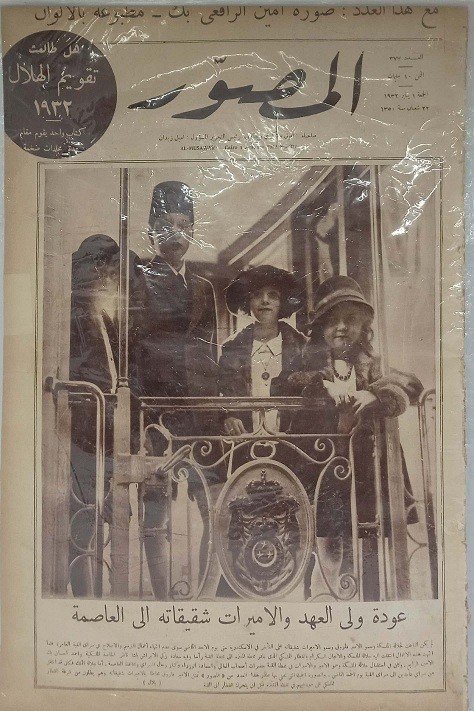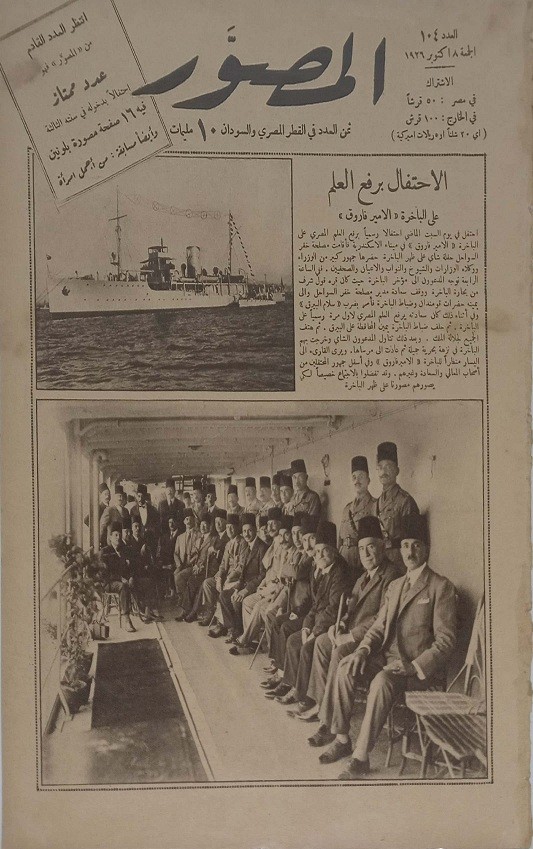Farouk I was the tenth ruler of Egypt from the Muhammad Ali dynasty and the penultimate King of Egypt and the Sudan, succeeding his father Fuad I, in 1936
His full title was "His Majesty Farouk I by the grace of God, King of Egypt and the Sudan Sovereign of Nubia of Kordofan and of Darfur" He was overthrown in the 1952 military coup d'état and forced to abdicate in favour of his infant son, Ahmed Fuad, who succeeded him as Fuad II He died in exile in Italy in 1965.
His sister Princess Fawzia Fuad was the first wife and consort of the Shah of Iran Mohammad Reza Pahlavi
Early life and education
He was born as His Sultanic Highness Farouk bin Fuad, Hereditary Prince of Egypt and Sudan, on 11 February 1920 at Abdeen Palace, Cairo, the eldest child of Sultan Fuad I (later King Fuad I) and his second wife, Nazli Sabri. He was of 10/16 Circassian (bilineal), 3/16 Turkish (bilineal), 2/16 French (matrilineal) and 1/16 Albanian (patrilineal) descent
In addition to his sisters, Fawzia, Faiza, Faika and Fathia, he had two half-siblings from his father's previous marriage to Princess Shwikar Khanum Effendi. Before his father's death, he was educated at the Royal Military Academy, Woolwich, England
Reign
Upon his coronation the 16-year-old King Farouk made a public radio address to the nation the first time a sovereign of Egypt had ever spoken directly to his people in such a way
And if it is God's will to lay on my shoulders at such an early age the responsibility of kingship I on my part appreciate the duties that will be mine and I am prepared for all sacrifices in the cause of my duty.... My noble people, I am proud of you and your loyalty and am confident in the future as I am in God. Let us work together. We shall succeed and be happy. Long live the Motherland
Farouk was enamored of the glamorous royal lifestyle. Although he already had thousands of acres of land, dozens of palaces and hundreds of cars, the youthful king often travelled to Europe for grand shopping sprees, earning the ire of many of his subjects It is said that he ate 600 oysters a week His personal vehicle was a red 1947 Bentley Mark VI, with coachwork by Figoni et Falaschi; he dictated that, other than the military jeeps which made up the rest of his entourage, no other cars were to be painted red In 1951 he bought the pear-shaped 94-carat Star of the East Diamond and a fancy-coloured oval-cut diamond from jeweller Harry Winston
He was most popular in his early years, and the nobility largely celebrated him. For example, during the accession of the young King Farouk, "the Abaza family had solicited palace authorities to permit the royal train to stop briefly in their village so that the king could partake of refreshments offered in a large, magnificently ornamented tent the family had erected in the train station." The ironies of history also meant that the Abaza family's own Wagih Abaza was in the Free Officer smovement that removed the King in 1952, later becoming governor of six governorates in post-Farouk Egypt
Farouk's accession initially was encouraging for the populace and nobility, due to his youth and Egyptian roots through his mother Nazli Sabri. However, the situation was not the same with some Egyptian politicians and elected government officials, with whom Farouk quarrelled frequently, despite their loyalty in principle to his throne. There was also the issue of the continuous British involvement in the Egyptian government, which Farouk struggled to resist.
During the hardships of the Second World War criticism was levelled at Farouk for his lavish lifestyle. His decision not to put out the lights at his palace in Alexandria when the city was blacked out because of German and Italian bombing was deemed particularly offensive by the Egyptian people. This was a large contrast to the British royal family back in England, who were well known to have an opposite reaction to the bombings near their home. Owing to the continuing British occupation of Egypt, many Egyptians, Farouk included, were positively disposed towards Germany and Italy, and despite the presence of British troops, Egypt remained officially neutral until the final year of the war. Consequently, Farouk's Italian servants were not interned, and there is an unconfirmed story that Farouk told British Ambassador Sir Miles Lampson (who had an Italian wife), "I'll get rid of my Italians when you get rid of yours". In addition, Farouk was known for harbouring certain Axis sympathies and even sending a note to Adolf Hitler saying that an invasion would be welcome
Following a ministerial crisis in February 1942, the British government, through its ambassador in Egypt, Sir Miles Lampson, pressed Farouk to have a Wafd or Wafd-coalition government replace Hussein Sirri Pasha's government. On the night of 4 February 1942, British troops and tanks surrounded Abdeen Palace in Cairo and Lampson presented Farouk with an ultimatum. Farouk capitulated, and Nahhas formed a government shortly thereafter. However, the humiliation meted out to Farouk, and the actions of the Wafd in co-operating with the British and taking power, lost support for both the British and the Wafd among both civilians and, more importantly, the military. With this, Farouk's popularity seemed to decrease significantly, especially with the rise of Arab nationalism. many of the people in the country view him a puppet to the powers of the West.
Farouk declared war on the Axis Powers only under heavy British pressure in 1945, long after the fighting in Egypt's Western Desert had ceased
On 17 October 1951 the Egyptian government got Parliamentary approval to cancel the 1936 Anglo-Egyptian Treaty. As a result, the British forces in the Suez Canal were considered occupation forces and king Farouk was declared "King of Egypt and Sudan". This title was not recognised by many countries, and Egypt entered diplomatic debates as well as internal political unrest
Farouk is also reported as having said "The whole world is in revolt. Soon there will be only five Kings left – the King of England, the King of Spades, the King of Clubs, the King of Hearts, and the King of Diamonds
Farouk was widely condemned for his corrupt and ineffectual governance, the continued British occupation, and the Egyptian army's failure in the 1948 Arab–Israeli War to prevent the creation of the state of Israel. Public discontent against Farouk rose to new levels Finally, on 23 July 1952, the Free Officers, led by Muhammad Naguib and Gamal Abdel Nasser, staged a military coup that launched the Egyptian Revolution of 1952. Farouk was forced to abdicate, and went into exile in Monaco and Italy, where he lived for the rest of his life Immediately following his abdication, Farouk's baby son, Ahmed Fuad, was proclaimed King Fuad II, but for all intents and purposes Egypt was now governed by Naguib, Nasser and the Free Officers. On 18 June 1953, the revolutionary government formally abolished the monarchy, ending 150 years of the Muhammad Ali dynasty's rule, and Egypt was declared a republic
The Egyptian government quickly moved to auction off the King's vast collection of trinkets and treasures including his seven-piece bedroom suite that was inspired by Napoleon and Josephine's suite at the Château de Malmaison Among the more famous of his possessions was one of the rare 1933 Double Eaglecoins, though the coin disappeared before it could be returned to the United States. (It later reappeared in New York in 1996 and was eventually sold at auction for more than seven million dollars
The 94-carat Star of the East diamond and another diamond bought from Harry Winston had not been paid for by the time of the King's overthrow in 1952; three years later an Egyptian government legal board entrusted with the disposal of the former royal assets, ruled in Winston's favour. Nevertheless, several years of litigation were needed before Winston was able to reclaim the Star of the East from a safe-deposit box in Switzerland
Exile and death
Farouk fled Egypt in great haste, and his abandoned possessions—including a huge collection of pornography—became objects of curiosity and ridicule
On his exile from Egypt, Farouk settled first in Monaco, and later in Rome, Italy. On 29 April 1958, the United Arab Republic, a federation of Egypt and Syria, issued rulings revoking his citizenship He was granted Monegasque citizenship in 1959 by his close friend Prince Rainier III
Farouk was thin early in his reign but later gained weight, reaching nearly 136 kg (300 pounds)—an acquaintance described him as "a stomach with a head". He died in the Ile de France restaurant in Rome on 18 March 1965, collapsing at his dinner table following a characteristically heavy meal While some claim he was poisoned by Egyptian Intelligence no official autopsy was conducted on his body. His will stipulated that he be buried in the Al Rifa'i Mosque in Cairo, but the request was denied by the Egyptian government under Gamal Abdel Nasser, and he was buried in Italy. The funeral service held in Rome was attended by his mother, Nazli Sabri King Faisal of Saudi Arabia stated he would be willing to have King Farouk buried in Saudi Arabia, upon which President Nasser said that the former monarch could be buried in Egypt, but not in Rifai' mosque. The body of King Farouk returned to Egypt on 31 March 1965 at night and was secretly buried in the Ibrahim Pasha Burial Site in Imam El Shafi' area





